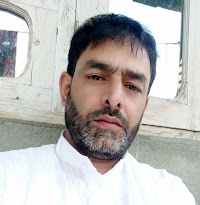JANDKNCERT | Free NCERT Solutions |
English | Class 11th | Hornbill | NCERT
Childhood | Poem 4 | Summary | Questions and Answers |
Childhood
When did my childhood go?
Was it the day I ceased to be eleven,
Was it the time I realised that Hell and Heaven,
Could not be found in Geography,
And therefore could not be,
Was that the day!
When did my childhood go?
Was it the time I realised that adults were not
all they seemed to be,
They talked of love and preached of love,
But did not act so lovingly,
Was that the day!
When did my childhood go?
Was it when I found my mind was really mine,
To use whichever way I choose,
Producing thoughts that were not those of other
people
But my own, and mine alone
Was that the day!
Where did my childhood go?
It went to some forgotten place,
That’s hidden in an infant’s face,
That’s all I know.
(Markus Natten)
Short Summary
The
poem "Childhood" by Markus Natten reflects on the transition
from childhood to adulthood and the loss of innocence. The poet wonders when
exactly he lost his childhood and what marks the end of this phase of life. He
explores various possibilities—whether it was when he gained the ability to
think independently, when he realized adults don’t always practice what they
preach, or when he understood the complexities of human behaviour and the
concept of hypocrisy. The poem ends with the realization that childhood is not
lost but simply left behind, becoming a memory, and is now found only in the
faces of innocent children.
Through this introspective journey, Natten explores
the theme of growing up and the emotional distance created as we move away from
the simplicity and purity of childhood.
Think it out
Question 1. Identify
the stanza that talks of each of the following.
|
individuality rationalism hypocrisy |
Answer:
Individuality:
The stanza that refers
to individuality is the third stanza:
"When did my
childhood go?
Was it the day I ceased
to be eleven,
Was it the time I
realized that Hell and Heaven
Could not be found in
Geography,
And therefore could not
be?
Was that the day!"
In this stanza, the poet reflects on when he began thinking for himself and questioning the established beliefs of childhood, marking the emergence of individuality.
Rationalism:
The second stanza
addresses rationalism:
"When did my
childhood go?
Was it the time I
realized that adults were not
All they seemed to
be,
They talked of love and
preached of love,
But did not act so
lovingly,
Was that the day!"
Here, the poet speaks
of realizing that the world and people are not always as they appear, and this
understanding marks a rational, critical way of thinking.
Hypocrisy:
The second stanza also
talks about hypocrisy:
"They talked of
love and preached of love,
But did not act so
lovingly."
This refers to the
realization that adults often fail to practice what they preach, highlighting
the hypocrisy that becomes apparent during the process of growing up.
Question 2. What
according to the poem is involved in the process of growing up?
Answer:
According to the poem, the process of growing up involves gaining
self-awareness, developing rational thinking, questioning the beliefs and
notions that were once accepted without doubt, and recognizing the hypocrisy in
the adult world. It also includes a loss of innocence and a shift from a
simple, trusting view of life to a more complex, nuanced understanding of the
world.
Question 3. What is the
poet’s feeling towards childhood?
Answer:
The poet expresses a sense of nostalgia and loss towards childhood. He reflects
on it as a time of innocence, simplicity, and unquestioned belief, which he now
realizes is lost. There is a wistful longing for the purity of childhood, but
also an acceptance that it is a natural part of life to leave it behind as one
grows up.
Question 4. Which do you think are the
most poetic lines? Why?
Answer:
“It went to some
forgotten place,
That’s hidden in an
infant’s face,
That’s all I
know."
These lines are particularly poetic because they
capture the fleeting and elusive nature of childhood. The image of childhood
being hidden in an infant’s face symbolizes innocence and purity, while also
conveying the idea that childhood is something we cannot fully return to, only
glimpse in the faces of others. The simplicity and mystery in these lines evoke
a deep sense of reflection and emotion, making them especially poignant.






.webp)




Leave your comment here.